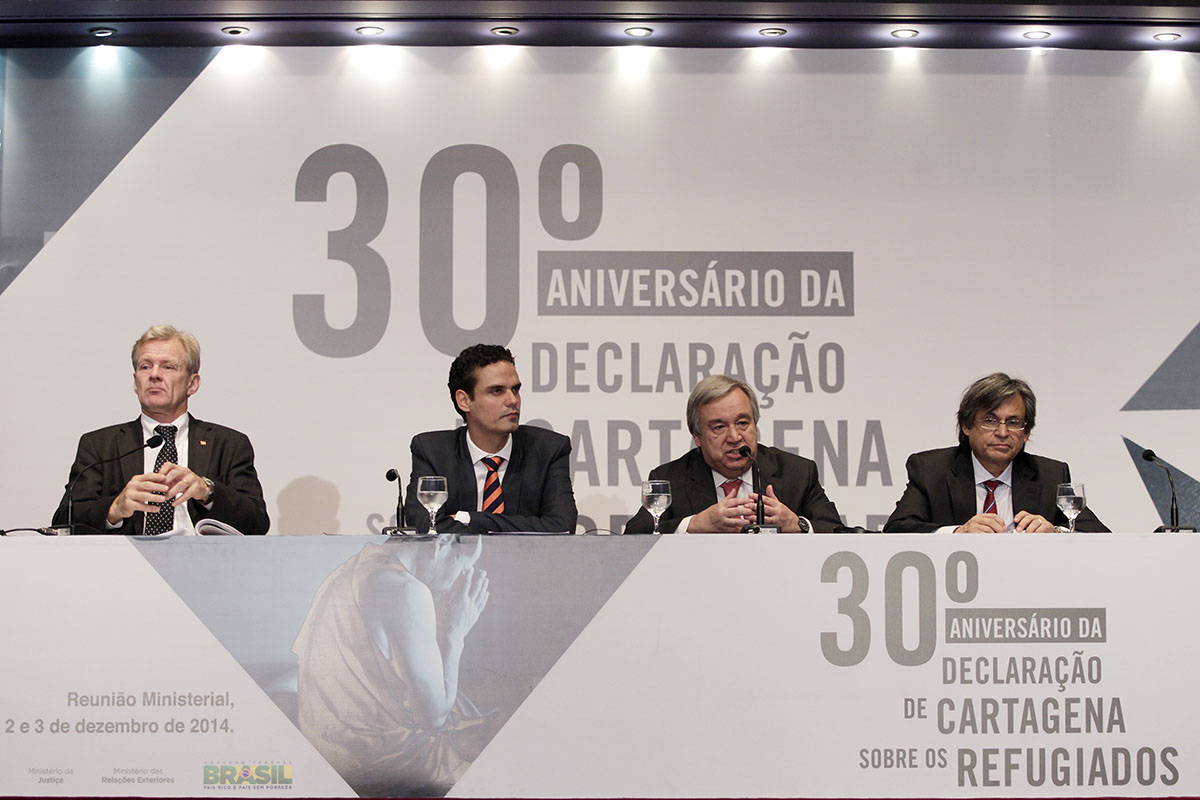Latin America renews commitment to Cartagena Refugee Declaration
Latin America renews commitment to Cartagena Refugee Declaration
16 November 2004
All Latin American countries today reaffirmed their commitment to the spirit of the Cartagena Declaration on Refugees and approved a plan of action to improve refugee protection throughout the region and meet the humanitarian needs of people fleeing violence in Colombia.
The commitment came during a two-day event to commemorate the 20th anniversary of the Cartagena Declaration on Refugees, a 1984 document that broadened the refugee definition for Latin America and proposed innovative approaches to refugee protection.
At the close of the commemoration, the 18 Latin American countries issued a declaration "reaffirming their solemn commitment to protecting persons who seek and are deserving of asylum in Latin America". The declaration recognized "the enduring relevance of the Cartagena Declaration on Refugees of 1984 and its importance in continuing to guide public policies for protection and the search for durable solutions for refugee situations."
The countries also adopted a plan of action to improve refugee protection in Latin America and respond to the humanitarian situation of Colombians in need of protection. The plan includes boosting Latin America's capacity to protect refugees by training key decision makers and developing refugee law and doctrine specific to the region. The plan also confronts two main aspects of the refugee situation in Latin America today - an increasing number of refugees concentrated in urban centres and the large number of Colombians in need of protection who remain invisible and vulnerable in the border areas of neighbouring countries. Projects will be developed to help refugees, particularly women, in urban centres to become self-sufficient; to provide documentation, legal status and basic assistance to Colombians in need of protection; and to build regional refugee resettlement programmes mainly for Latin American refugees.
"Cartagena's pragmatic and solution-oriented spirit is as relevant today as it was when adopted in 1984," said High Commissioner Ruud Lubbers in his opening address at the commemoration.
Lubbers noted the Declaration's emphasis on core human rights principles and durable solutions, including local integration, with its recommendations to grant refugees social, economic and cultural rights. "I am convinced that this is one of the most important long-term contributions of Cartagena: recognizing that refugees are human beings with dignity, whose first concern is to attain a level of self-sufficiency and to avoid dependence on hand-outs and humanitarian assistance," said Lubbers.
The commemoration took place against the backdrop of growing national security concerns, the fight against terrorism and increasing migration controls in the Americas. The Latin American context also increasingly sees mixed migration movements, which make identifying and responding to people in need of protection more difficult. The closing declaration called for national security policies to respect international instruments for refugee protection and human rights, and stressed the need for legal safeguards in migration processes to guarantee access to refugee status determination procedures for those needing protection.
The commemoration was hosted by the government of Mexico and co-organized by UNHCR, the Norwegian Refugee Council, the human rights organs of the OAS, the Inter-American Institute of Human Rights. Four preparatory meetings - in Mexico, Brazil and two in Colombia - led up to the final commemorative event, and brought together government officials, refugee experts and civil society representatives from countries in the region.
To date, ten Latin American countries have incorporated the Cartagena refugee definition in their national legislation, while three apply the definition in practice.




